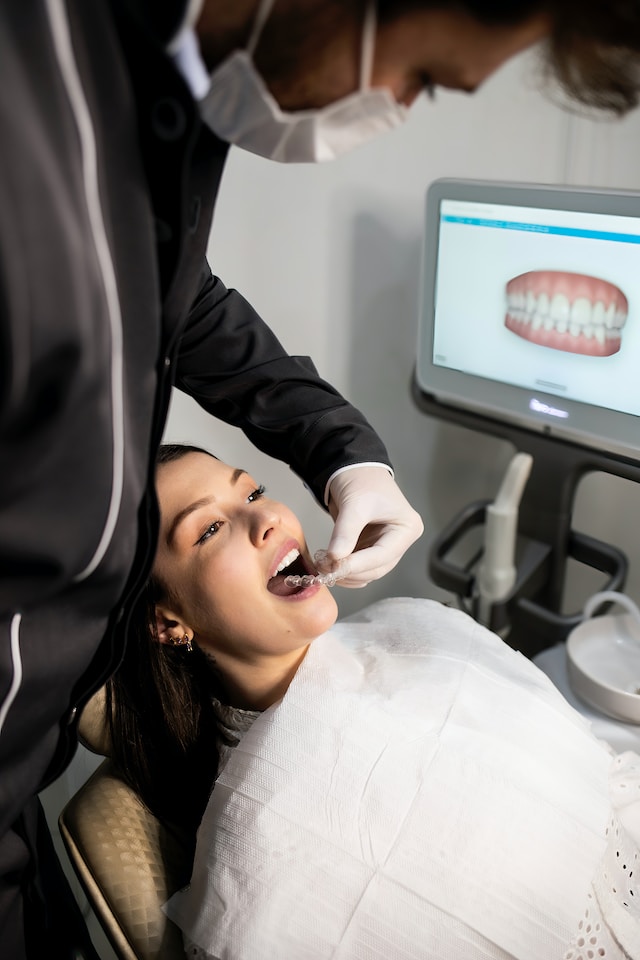
Teeth Grinding (Bruxism): Causes, Effects, and Treatment Options
Bruxism, the clinical name for teeth grinding, is a common dental condition that affects people of all ages. It is characterised by the unconscious grinding or clamping of teeth which occurs most often during sleep but can also be seen in day time. Since bruxism occupies a significant niche of oral pathologies, a comprehensive clarification is essential.
Causes of Bruxism
Bruxism is a multifactorial phenomenon. Though the contributive mechanisms differ from one individual to another, several common aspects have been mentioned as causative agents.
Stress and Anxiety
Among the most common causes of bruxism are stress and anxiety. If the level of psychic stress is high it can cause involuntary teeth grinding or clamping during the night. It is necessary to identify underlying stressors as integral components of the treatment method because of the correlation between emotional well-being and bruxism.
Malocclusion (Misalignment of Teeth)
The second key contributing factor to bruxism is malocclusion, which profiles a poor orientation of the teeth. Malocclusion may result in maladjustment of teeth, indeed, if the upper and lower rows do not meet well, there will be an irregular pattern of biting which exerts some pressure on specific teeth that sets grinding motion into action.
Sleep Disorders and Lifestyle Factors
Sleep apnea is one of the most common sleep disorders present in individuals with bruxism. Disrupted sleep patterns and arousal episodes, typically associated with these disorders, may contribute to the occurrence of teeth grinding at night.
Other stimulants that have been reported to worsen bruxism include overconsumption of caffeine, alcohol, and tobacco. The identification as well as modification of such lifestyle factors can be an important step in the process of managing bruxism.
Medications
Some drugs, specifically those that have an impact on the body’s central nervous system, include bruxism as a possible adverse reaction. People, who consume this kind of medication must consider it as a side effect and consult a specialist in the field.
A thorough understanding of the various causes enables healthcare practitioners to devise treatment plans tailored to the specific needs and conditions of individuals with bruxism.
Effects of Bruxism on Oral Health
Effects of bruxism stretch further than teeth grinding as it affects different oral health components. It’s crucial for both patients suffering from bruxism and dentists, who strive to provide comprehensive care, to be aware of these consequences.
Tooth Wear and Fractures
Active grinding from teeth causes a lot of damage such as active wear of the occlusal surfaces and dentine hypersensitivity. With time, it may result in the teeth either having a flattened structure or chips that would thus fail to be aesthetically appealing. It can be noted that tooth wear does not simply affect appearance but affects the function of orals and even general dental health.
Sensitivity and Pain
Often, bruxism results in increased tooth sensitivity and pain, especially in the mandible itself and related muscles. The continuous force exerted on teeth and support structure may lead to pain, thus it is very important to consider pain management as part of the management of bruxism.
Temporomandibular Joint (TMJ) Disorders
Of all the joints, TMJ is most susceptible to attack by bruxism. Persistent grinding leads to TMJ disorders, resulting in pain, clicking sounds, and restricted jaw movement. TMJ disorders are known to affect the quality of life, which necessitates targeted intervention for effective management.
Gum Recession
Gum recession is a common consequence of bruxism due to the unnecessary pressure applied by grinding teeth. With gum line recession, the roots become exposed, making the teeth more susceptible to decay. Treating gum recession is crucial for preventing subsequent issues and maintaining proper oral health.
Treatment Options for Bruxism
Effective management of bruxism should involve an integrated approach that addresses both the causes and the consequences. There are different types of treatments from the conduct intervention to dental work.
Stress Management
Prevention methods of sleep grinding help in managing stress-related bruxism. Incorporating meditation, deep breathing exercises, and counseling helps to reduce the level of anxiety hence eliminating the need for grinding of teeth. Stress management as part of the daily routine can also be a way of promoting general health.
Dental Splints or Mouthguards
Dental splints or mouth guards are the most frequently used in individuals with bruxism, especially among people grinding their teeth during sleep. These particular oral devices are a form of barrier, preventing the upper and lower teeth from directly contacting one another minimising, in that way, the effects associated with grinding.
Correcting Malocclusion
Treating malocclusion may involve orthodontic treatments or dental surgeries to restore the teeth’s normal alignment. It is possible to minimise chances of irregular patterns of biting, by employing correct occlusion. Orthodontist collaboration is also critical in the formulation and implementation of corrective methods.
Medication Management
Some instances may necessitate the use of medication in dealing with bruxism. Depending on the severity and progression of the condition, patients are advised to consult healthcare professionals at the first sign of symptoms for the prescription of muscle relaxants or medications. These are aimed at managing the primary stress and anxiety factors as part of a comprehensive treatment plan. The whole process of medication management should be under strict analysis to identify the effectiveness and the side effects of it.
Preventive Measures and Self-Care
Apart from the clinical solutions, it’s possible to actively address bruxism and prevent it thanks to improved oral health and general well-being.
Regular Dental Check-ups
Regular dental check-ups can lead to the early detection of bruxism and its associated consequences. Through the evaluation, dentists can measure structural modifications in teeth, evaluate bite linearity, and prescribe interpositions accordingly.
Oral Hygiene Practices
People with bruxism need to observe good oral hygiene. The regularity in brushing, flossing, and use of toothpaste with fluoride enhances overall oral health while preventing challenges like dental caries and gum disease.
Bruxism is a complex dental disease that has different reasons for occurrence, various consequences, and treatment opportunities. Understanding how this condition is complicated is important for patients and health workers who aim to deliver appropriate interventions. Given the factors that cause bruxism and its impact on oral health, it is apparent that a comprehensive approach is needed to overcome this disorder. It is the collaboration between people and professionals working in the healthcare industry that plays one of the key roles in the creation of personalised treatment strategies aimed at ensuring optimal oral health for patients with bruxism.






